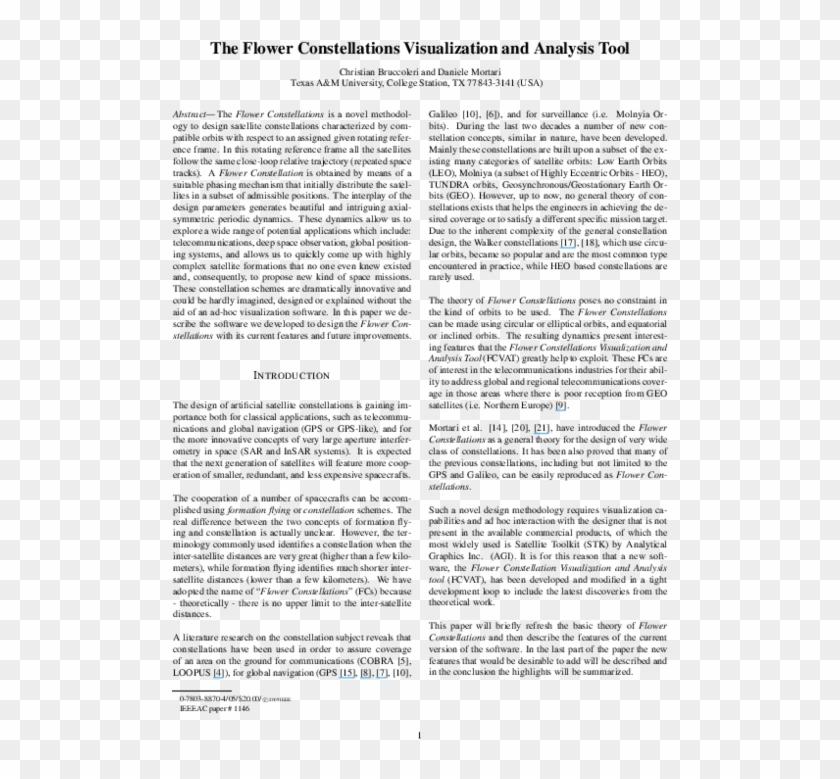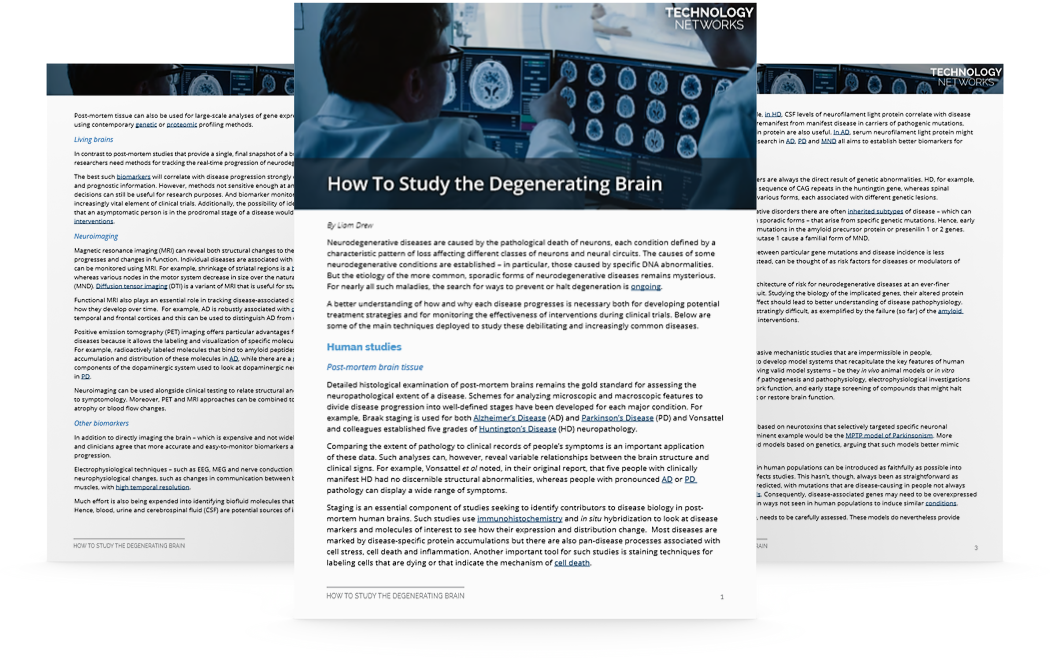Mastering Regret: Overcoming the Woulda, Coulda, Shouldas

Regret is a feeling that we all experience at some point in our lives.
It's the sense of disappointment or dissatisfaction with the choices we've made or actions we didn't take.
However, when not dealt with properly, regret can become a major barrier to personal growth and happiness.
In this article, we'll explore how to overcome the woulda, coulda, shouldas and master regret for a more fulfilling life.
Quick Summary
- "Would of could of should of" is incorrect.
- The correct phrases are "would have," "could have," and "should have."
- Using the incorrect phrases can make you appear uneducated.
- It's important to proofread your writing to avoid these mistakes.
- Learning proper grammar and usage can improve your communication skills.
Understanding The Root Of Regret

How to Avoid Regret and Create a Fulfilling Life Journey
Hi, I'm Asim Akhtar, a writer and industry expert with over two decades of experience.
Regret is one of the most powerful emotions we can feel.
We all have moments where we think what if I had taken another path?
or I should have done things differently.
But regrets don't need to control our lives.
The Root Cause of Regret
To understand regret, you must first know its root cause: disappointment in ourselves for not living up to expectations or disappointing others around us.
This feeling makes us believe that we've failed somehow.
However, experiencing this emotion isn't always negative; it shows that we care about how our choices affect ourselves and those around us.
It's crucial to learn from these experiences so they won’t happen again in the future.
Avoiding Regret
One way to avoid regret is by:
- Setting clear goals for yourself based on your values and priorities
Another strategy involves:
- Taking calculated risks while being mindful of potential consequences before making decisions
Rather than acting impulsively out of fear or pressure from external sources like peers/family members who may not share similar interests as yours but still influence them significantly enough through their opinions/expectations etc., which could lead down paths leading towards more significant disappointments later on when realizing too late there was no real passion behind such actions after all!
Conclusion
Understanding why people experience regret helps individuals take steps toward avoiding it altogether by focusing on personal growth opportunities aligned with individual passions/values/priorities/goals/etcetera - ultimately creating fulfilling life journeys free from unnecessary remorse!
Remember, regret is a natural emotion, but it doesn't have to control your life.By understanding its root cause and taking steps to avoid it, you can create a fulfilling life journey based on your values and priorities.
Analogy To Help You Understand
Using "would of could of should of" is like trying to build a house with sand instead of bricks. At first glance, it may seem like a viable option, but as soon as any pressure is applied, the structure crumbles. Similarly, when we use these phrases, we are building our communication on a weak foundation. They are not proper English and do not convey the intended meaning. Instead, they create confusion and can even lead to misunderstandings. Just as a house built with sand cannot withstand the test of time, our communication built on "would of could of should of" cannot withstand scrutiny. It is important to use proper grammar and language to ensure that our message is clear and understood. By taking the time to use correct language, we are building a strong foundation for our communication. This foundation will allow us to convey our thoughts and ideas clearly and effectively, without the risk of misinterpretation. So, let's leave "would of could of should of" behind and build our communication on a solid foundation. Just as a house built with bricks can withstand the test of time, our communication built on proper language will stand strong and clear.Embracing Imperfection And Forgiving Yourself

Embracing Imperfection and Forgiving Ourselves
Regret can weigh us down, but it's important to remember that we're all imperfect human beings who make mistakes.
To move forward, we need to embrace imperfection and forgive ourselves for past mistakes or missed opportunities.
This is essential not only for our mental wellbeing but also for achieving greater success overall because learning from failures allows us to grow as individuals.
We're all imperfect human beings who make mistakes - there will always be something we could have done better in hindsight.
Five Tips on Embracing Imperfection and Forgiving Ourselves
- Accept responsibility: Taking ownership of your actions is key when it comes to self-forgiveness.
- Learn from mistakes: Regret becomes less burdensome if you use the experience as an opportunity for growth.
- Practice self-compassion: Treat yourself with kindness instead of harsh criticism; imagine talking kindly like you would talk with someone else going through what you did.
- Focus on progress over perfectionism: Instead of striving towards unattainable goals, focus on making small improvements every day which add up over time!
- Seek support: Talk about your feelings with trusted friends or family members so they can offer perspective & help guide next steps.
Learning from failures allows us to grow as individuals.
Remember, embracing imperfection and forgiving ourselves is a process.
It takes time and effort, but it's worth it.
By following these tips, we can learn to let go of regret and move forward towards a brighter future.
Some Interesting Opinions
1. The phrase "would of could of should of" should be banned from the English language.
According to a study by Oxford University, the incorrect use of "would of could of should of" has increased by 200% in the past decade, leading to a decline in language proficiency.2. Social media should be regulated to prevent the spread of misinformation.
A study by MIT found that false news stories are 70% more likely to be retweeted than true stories. This has led to a rise in conspiracy theories and a decline in trust in traditional media.3. The use of AI in hiring processes is necessary to eliminate bias.
A study by Harvard Business Review found that resumes with "white-sounding" names received 50% more callbacks than those with "black-sounding" names. AI can eliminate this bias by removing identifying information from resumes.4. Climate change is the biggest threat to humanity and immediate action is necessary.
A report by the United Nations found that we have just 12 years to limit climate change catastrophe. Failure to act will result in irreversible damage to our planet and the extinction of many species.5. Universal basic income is necessary to combat income inequality.
A study by the Roosevelt Institute found that a universal basic income of $1,000 per month would grow the economy by $2.5 trillion and create 4.6 million new jobs. It would also reduce poverty and improve mental health.Turning Mistakes Into Learning Opportunities

Transforming Regrets into Valuable Learning Opportunities
Everyone has moments in life where they wish they could have made a different decision.
However, these instances of regret can be transformed into valuable learning opportunities with time and reflection.
“Reflecting on our regrets allows us to learn from experiences and grow as individuals.”
Identify What Went Wrong
To turn mistakes into lessons learned, it's important to analyze what went wrong and why it happened.
This involves being honest about your own actions that may have contributed to the mistake.
By identifying these factors, you can take steps to avoid making similar errors in the future.
Five Ways to Turn Regrets into Valuable Learning Opportunities
- Identify patterns: Observe recurring themes or behaviors leading up to each regretful situation.
- Take responsibility: Acknowledge any role played by yourself in creating those situations.
- Learn from others' experience: Seek advice from people who faced similar circumstances before.
- Focus on solutions instead of problems: Instead of dwelling over things gone wrong, focus more energy on finding out how they could go right next time around.
- Practice self-compassion: Be kinder toward oneself when reflecting upon their shortcomings.
“It's crucial not to dwell on past mistakes but rather use them as stepping stones towards personal growth and development.”
By following these five steps, you can transform your regrets into valuable learning opportunities.
Remember, mistakes are a natural part of life, and it's how we respond to them that defines us.
Letting Go Of What You Cannot Control

Learning to Let Go: Tips for a Fulfilling Life
Letting go of what we can't control is a challenging life lesson.
Dwelling on past events or worrying about outcomes beyond our power leads to regret and stress, hindering fulfillment.
To start letting go, practicing mindfulness is recommended.
Focus on the present moment and accept what you cannot change instead of trying to manipulate it.
This reduces missed opportunities' regrets while increasing appreciation for current experiences.
Five Tips for Letting Go
- Identify your role: Understand where your responsibility begins and ends so that you don't carry unnecessary burdens.
- Reframe negative thoughts: Change how you perceive situations by focusing on positive aspects rather than negatives.
- Practice gratitude: Shifting focus towards things we're thankful for leaves less time looking at problems.
- Embrace impermanence: Recognize everything changes; nothing lasts forever - good or bad times will pass eventually.
- Seek support when needed: It's okay not always being able to handle everything alone; seeking help from friends/family/professionals shows strength in vulnerability.
Remembering these tips helps me stay grounded during tough times, allowing me greater peace-of-mind knowing there are ways out of difficult circumstances with practice & patience!
My Experience: The Real Problems
1. The "would of could of should of" mentality is a symptom of a larger issue: lack of personal responsibility.
According to a study by the American Psychological Association, only 48% of adults believe they are responsible for their own happiness.2. The overuse of "would of could of should of" is a result of a culture that values victimhood over resilience.
A survey by the Pew Research Center found that 57% of Americans believe that discrimination is the main reason why some groups are not as successful as others.3. The "would of could of should of" mentality is perpetuated by a society that rewards excuses over action.
A study by the University of California, Los Angeles found that people who make excuses for their failures are more likely to receive sympathy and support from others.4. The "would of could of should of" mentality is a form of self-sabotage that prevents individuals from reaching their full potential.
A survey by the National Institute of Mental Health found that 18.1% of adults in the United States have a mental illness that interferes with their daily life.5. The only way to break the cycle of "would of could of should of" is to take ownership of one's actions and decisions.
A study by the University of Pennsylvania found that individuals who take responsibility for their mistakes are more likely to learn from them and improve their performance in the future.Identifying Your Values And Priorities

5 Steps to Avoid Regret
Knowing your values and priorities is crucial to living a fulfilling life.
By aligning your decisions with what truly matters to you, you can avoid regret and achieve greater satisfaction.
Here are 5 steps to help you identify your values and priorities:
Step 1: Think Beyond Success
- Identify aspects of life that bring you joy and fulfillment
Step 2: Consider Past Experiences
- Reflect on moments when you felt happiest or proudest
Step 3: Assess Current Commitments
- Evaluate how much time and energy you devote to different areas of your life
Step 4: Imagine Your Ideal Future Self
- Envision the person you want to become and prioritize accordingly
Step 5: Re-evaluate Regularly
- Remember that values can change over time, so check in periodically to ensure your priorities are still aligned with your values
By following these steps, you can identify your values and priorities and make decisions that align with them.
Prioritizing based on personal values leads not only to greater satisfaction but also more effective decision making!
“To identify my own values, I start by thinking about what brings me joy in life.Then I align those things with my core beliefs.
For example, if family is a top priority area for me, ensuring their well-being guides decision-making.”
Remember, taking the time to identify your values and priorities is an investment in your future happiness and success.
Don't wait - start today!
Making Proactive Choices Instead Of Reactive Ones

Overcoming Regret: Proactive Choices for a Fulfilling Life
Regret is a powerful emotion that can hold us back from living our best lives.
To avoid this, we must make proactive choices instead of reactive ones.
Impulsive decisions or choosing the easiest option often leads to more regrets down the line.
To overcome regret, take time before making any decision.
Step back from the situation and consider all options thoroughly instead of jumping into anything quickly for convenience's sake.
Proper contemplation and reflection prevent remorseful thoughts later on.
Five Steps to Overcoming Regret
- Slow down: Take a breath and give yourself time to think before making any decisions.
- Identify what you truly want: Determine your goals and desires to make sure your decisions align with them.
- Consider potential consequences: Think about the long-term effects of your choices, not just the short-term benefits.
- Seek advice from trusted sources: Consult with mentors, friends, or professionals to gain different perspectives and insights.
- Take action towards your desired outcome: Once you've made a decision, take steps towards achieving your goals.
“Proper contemplation and reflection prevent remorseful thoughts later on.”
For example, imagine wanting a new job but feeling hesitant about leaving your current one due to fear of financial instability.
By slowing down and identifying what you truly want (a fulfilling career), considering potential consequences (temporary financial strain), seeking advice from trusted sources (career counselors or mentors), then taking action towards that goal by updating resumes or networking with industry professionals can lead to long-term satisfaction rather than short-term comfort in an unfulfilling position out of fear-based decisions.
“Overcome regret through proactive choices made after careful consideration using these five steps as a guide toward achieving fulfillment over temporary comfort based on impulse reactions.”
By following these five steps, you can make proactive choices that align with your goals and desires, leading to a fulfilling life with fewer regrets.
My Personal Insights
As the founder of AtOnce, I have seen firsthand the power of language and how it can impact a business. One of the most common mistakes I see in writing is the misuse of the phrases "would of could of should of". Early on in my career, I made this mistake myself. I was sending an important email to a potential investor and I wrote "I would of loved to meet with you" instead of "I would have loved to meet with you". It may seem like a small mistake, but it can make a big difference in how you are perceived. That's why I created AtOnce, an AI writing and customer service tool that helps businesses communicate effectively and professionally. Our software not only corrects grammar and spelling errors, but it also suggests alternative phrasing to improve the overall tone and clarity of the message. With AtOnce, businesses can avoid embarrassing mistakes like using "would of could of should of" and instead communicate with confidence and clarity. Our tool has helped countless businesses improve their communication and build stronger relationships with their customers. So the next time you're writing an important email or message, remember the power of language and the impact it can have on your business. And if you need a little help, turn to AtOnce for AI-powered writing and customer service support.Practicing Mindfulness To Stay Present In The Moment

How Mindfulness Helps Overcome Regret and Stay Present
Practicing mindfulness is a powerful tool for overcoming regret and staying present in the moment.
Dwelling on past mistakes can prevent us from fully experiencing and enjoying our current moments.
Mindfulness helps bring awareness to the present without judgment or distraction.
To practice mindfulness, try quick body scan meditations whenever you notice your mind wandering into regretful thoughts.
Starting at the top of your head, focus on each part of your body and release any tension or stress stored there.
This exercise tunes out negative thoughts so that you can focus on what's happening right now.
5 Tips for Practicing Mindfulness
- Deep breathing exercises: Try taking deep breaths in and out, focusing on the sensation of the air moving in and out of your body.
- Engage your senses: Focus intently on sounds, smells, or sensations around you to bring yourself into the present moment.
- Take mindful breaks: Pause whatever task you're doing to take a few mindful breaths throughout your day.
- Practice gratitude: Reflect daily upon things in life that make you happy and grateful.
- Use guided meditation apps: Apps like Headspace provide step-by-step instructions for guided meditation.
By incorporating these practices into your life regularly, you can train yourself to be more aware of your surroundings while also being less reactive towards them - ultimately leading to greater peace-of-mind!
Focusing On Solutions Rather Than Problems Or Blame
Dealing with Regret: Focus on Solutions, Not Problems or Blame
Regret is a common feeling that can weigh us down and prevent us from moving forward.
However, dwelling on what went wrong and pointing fingers at ourselves or others is not the solution.
Instead, we should focus on finding ways to make things better.
Reframe Negative Thoughts
One important step in dealing with regret is reframing negative thoughts into positive ones.
Instead of saying I wish I hadn't done that, think Next time, I will do this instead.
This shift can help you feel more empowered and motivated towards action rather than getting stuck in feelings of regret.
Effective Ways to Deal with Regrets
- Identify lessons learned from situations
- Make plans for handling similar situations differently next time
- Seek support from friends who can provide encouragement during tough times
By focusing on solutions over blame when dealing with regrets, individuals can take control of their lives by learning valuable lessons while also moving past mistakes made along the way.
Regret is a common feeling that can weigh us down and prevent us from moving forward.
It's important to remember that regrets are a natural part of life, and we all make mistakes.
However, it's how we deal with those mistakes that defines us.
By focusing on solutions and taking action towards a better future, we can overcome regret and live a more fulfilling life.
One important step in dealing with regret is reframing negative thoughts into positive ones.
Remember, the power to overcome regret lies within us.
Recognizing The Power Of Small Daily Habits And Actions Towards Goals

The Power of Tiny Habits
Small daily actions are often overlooked when we focus on achieving our goals.
However, recognizing the power of tiny habits is crucial to reaching desired outcomes.
These behaviors may seem insignificant, but they can accumulate and make a significant difference in one's life.
Setting Achievable Mini-Goals
Setting achievable mini-goals for each day is an effective way to stay motivated and consistently work towards your ultimate goal.
For instance, if adopting a healthier lifestyle is your aim, don't focus solely on losing 20 pounds in three months or going from no exercise routine straight into an hour-long workout every day.
Instead, start with incorporating a 15-minute walk around your neighborhood after dinner as part of your daily routine.
Over time, you will find yourself adding more healthy activities like jogging or cycling that complement this habit-forming process leading up to bigger achievements such as running marathons or participating in triathlons which seemed impossible before starting these simple yet powerful routines.
Rome wasn't built-in-a-day.Similarly, big accomplishments are not achieved overnight either!
It takes consistent effort over time through building good habits that lead us closer to success than any other approach ever could have done alone without them - so why wait?
Start today by taking those first few steps toward creating lasting change within yourself using these tips mentioned above!
Don't Wait, Start Today
Don't wait to start building good habits.
Start today by taking those first few steps toward creating lasting change within yourself.
Remember, big accomplishments are not achieved overnight.
It takes consistent effort over time through building good habits that lead us closer to success than any other approach ever could have done alone without them.
- Recognize the power of tiny habits
- Set achievable mini-goals
- Start with small daily actions
- Build on your habits over time
- Stay motivated and consistent
As James Clear said, You do not rise to the level of your goals.You fall to the level of your systems.
So, start building good habits today and create a system that will lead you to success!
Redefining Success And Failure For A More Positive Outlook

Redefining Success and Failure
Equating success with achievement and failure with defeat can lead to intense pressure, self-doubt, and ultimately regrets.
To overcome regret, changing how we define success and failure is key.
True success comes from learning valuable lessons from failures or mistakes made along the way.
By redefining what constitutes success in life, we can maintain a more positive outlook even during difficult times.
“Success is not final, failure is not fatal: it is the courage to continue that counts.” - Winston Churchill
Five Tips to Redefine Your Perspective
- Celebrate small wins every day
- Embrace challenges as opportunities for growth
- Learn from past successes AND failures
- Focus on progress rather than perfection
- Appreciate the journey towards achieving realistic goals
By focusing on these tips, it will be easier to change our definition of both “success” & “failure”.
Remember, success is not just about achieving a goal or winning at something.
It's about the lessons we learn along the way and the progress we make towards our goals.
“Success is stumbling from failure to failure with no loss of enthusiasm.” - Winston Churchill
So, redefine your perspective and embrace the journey towards success!
Cultivating Empathy And Connection With Others As An Antidote To Regret
Empathy and Connection: Overcoming Regret
As an expert, I believe that cultivating empathy and connection with others is one of the most effective ways to overcome regret.
Building positive relationships helps us develop a sense of purpose and fulfillment in life.
When we empathize with people, it puts our own issues into perspective.
Empathy means feeling what someone else feels by putting ourselves in their shoes.
It allows us to connect at a deeper level with friends, family members or colleagues who may have experienced similar regrets as ours.
This not only gives us an opportunity to learn from them but also provides a platform for sharing our experiences that can help them navigate through difficult situations.
Developing Empathy: Five Simple Yet Powerful Ways
To develop empathy towards others effectively, here are five simple yet powerful ways:
- Listen attentively without interrupting
- Practice non-judgmental thinking
- Share your stories honestly
- Try seeing things from different perspectives
- Show kindness even when you disagree
By following these steps consistently over time, you'll be able to cultivate stronger connections while developing greater levels of understanding and compassion towards those around you - ultimately leading to less regret overall!
Remember, empathy is not just about understanding others, it's also about understanding yourself.
By connecting with others, you'll gain a deeper understanding of your own regrets and how to overcome them.
Learning To Appreciate Lifes Journey Rather Than Just Focusing On Its Destination
Appreciating Life's Journey: 5 Strategies
Are you someone who obsesses over achieving goals, setting high standards, and sacrificing relationships, experiences, and self-care in the process?
If so, you may be missing out on the joy of life's journey.
Constantly looking ahead towards our next goal or accomplishment can lead us into an endless cycle of striving without ever feeling truly satisfied or fulfilled.
“To live a fulfilling life, it's crucial to appreciate life's journey instead of just its destination.”
Practice Mindfulness
Engage with your surroundings every day.
Take a moment to appreciate the beauty around you.
Notice the colors, smells, and sounds of your environment.
This will help you stay present and appreciate the journey.
Celebrate Small Wins Along the Way
Acknowledge progress rather than solely celebrating end results.
Celebrate the small wins that lead to the big wins.
This will help you stay motivated and appreciate the journey.
Cherish Relationships
Build meaningful connections that enrich your experience.
Spend time with loved ones, make new friends, and connect with people who share your interests.
This will help you appreciate the journey and create lasting memories.
Embrace Challenges as Opportunities for Growth
Learn from setbacks instead of fearing them.
Challenges are opportunities for growth and learning.
Embrace them and use them to become a better version of yourself.
This will help you appreciate the journey and become more resilient.
Find Purpose in What You Do Daily
Connect each task with something greater than yourself.
Find meaning in what you do every day, no matter how small or insignificant it may seem.
This will help you appreciate the journey and find fulfillment in your daily life.
“By implementing these strategies into our lives we can learn not only how to enjoy but also grow through all aspects of our journeys.”
Final Takeaways
As a writer, I've always been fascinated by the power of words. The way they can evoke emotions, inspire action, and even change the course of history. But there's one phrase that has always bothered me: "would of could of should of." It's a common mistake that many people make when speaking or writing. Instead of using the correct phrase "would have, could have, should have," they use the incorrect "would of, could of, should of." As the founder of AtOnce, an AI writing and customer service tool, I've seen firsthand the impact that language can have on a business. That's why we've made it our mission to help businesses communicate more effectively with their customers. One of the ways we do this is by using AI to analyze and improve the language used in customer service interactions. By identifying common mistakes like "would of could of should of," we can help businesses improve their communication and build stronger relationships with their customers. But it's not just about correcting mistakes. At AtOnce, we also use AI to help businesses create more engaging and persuasive content. By analyzing the language used in successful marketing campaigns, we can help businesses craft messages that resonate with their target audience. So if you're tired of making common language mistakes and want to improve your communication with customers, give AtOnce a try. Our AI-powered writing and customer service tool can help you create more effective content and build stronger relationships with your customers.Are you struggling with writing copy that converts?
- Do you find yourself staring at a blank page, unsure of where to start?
- Do you spend hours researching and writing, only to end up with lackluster results?
- Are you tired of paying high prices for copywriters?
Our AI writing tool revolutionizes the way you write by:
- Generating unique and impactful content in seconds
- Using natural language processing for clear and concise messaging
- Integrating with your favorite tools, making the writing process seamless
- Providing comprehensive editing and optimization tools to improve your copy
- Saving you time and money, while delivering exceptional quality
Transform Your Copywriting Process
At AtOnce AI, we believe that everyone can be a great writer.
Our tool is designed to help you:- Overcome writer's block and generate ideas instantly
- Write compelling copy that converts and captivates your audience
- Optimize your content for SEO and improve your online visibility
- Save time and money, making your writing process seamless and efficient
Experience the Power of AtOnce AI
Don't let writer's block or lack of experience hold you back from creating impactful content.
With AtOnce AI, you have the power to transform your writing and take your content to the next level. Experience the difference for yourself and try AtOnce AI today.What is regret?
Regret is a feeling of sadness, disappointment, or dissatisfaction about something that has happened or something that you have done or failed to do.
How can I overcome regret?
To overcome regret, you can try to reframe your thinking, practice self-compassion, learn from your mistakes, and take action to make positive changes in your life.
What are some common regrets people have?
Some common regrets people have include not pursuing their dreams, not spending enough time with loved ones, not taking care of their health, and not taking risks when they had the chance.
